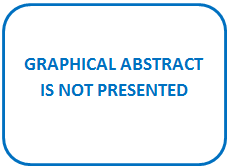Development of assessment and forecasting techniques using fuzzy cognitive maps
DOI:
https://doi.org/10.15587/2706-5448.2023.281892Keywords:
artificial intelligence, analysis objects, complex technical systems, vague cognitive maps, uncertaintyAbstract
Nowadays, no state in the world is able to work on the creation and implementation of artificial intelligence (AI) in isolation from others. AI technologies are used to solve general and highly specialized tasks in various spheres of society. In the process of assessing (identifying) the state of complex objects and objects of management analysis, there is a high degree of a priori uncertainty regarding their state and a small amount of initial data describing them. At the same time, despite the huge amount of information, the degree of non-linearity, illogicality and noisy data is increasing. That is why the issue of improving the efficiency of assessing the condition of components and objects is an important issue. Thus, the objects of analysis were chosen as the research object. The subject of research is the identification and forecasting of the analysis object.
In the research, the evaluation and forecasting method was developed using fuzzy cognitive maps. The features of the proposed method are:
‒ taking into account the degree of uncertainty about the object state while calculating the correction factor;
‒ adding a correction factor for data noise as a result of distortion of information about the object state;
‒ reduction of computing costs while assessing the object state;
‒ creation of a multi-level and interconnected description of hierarchical objects;
‒ correction of the description of the object as a result of a change in its current state using a genetic algorithm;
‒ the possibility of performing calculations with source data that are different in nature and units of measurement.
It is advisable to implement the proposed method in specialized software, which is used to analyze the state of complex technical systems and while making decisions.
References
- Shevchenko, A. I., Baranovskyi, S. V., Bilokobylskyi, O. V., Bodianskyi, Ye. V., Bomba, A. Ya. et al.; Shevchenko, A. I. (Ed.) (2023). Stratehiia rozvytku shtuchnoho intelektu v Ukraini. Kyiv: IPShI, 305.
- Shyshatskyi, A. V., Bashkyrov, O. M., Kostyna, O. M. (2015). Rozvytok intehrovanykh system zviazku ta peredachi danykh dlia potreb Zbroinykh Syl. Ozbroiennia ta viiskova tekhnika, 1 (5), 35–40.
- Sova, O., Shyshatskyi, A., Salnikova, O., Zhuk, O., Trotsko, O., Hrokholskyi, Y. (2021). Development of a method for assessment and forecasting of the radio electronic environment. EUREKA: Physics and Engineering, 4, 30–40. doi: https://doi.org/10.21303/2461-4262.2021.001940
- Shyshatskyi, A., Zvieriev, O., Salnikova, O., Demchenko, Ye., Trotsko, O., Neroznak, Ye. (2020). Complex Methods of Processing Different Data in Intellectual Systems for Decision Support System. International Journal of Advanced Trends in Computer Science and Engineering, 9 (4), 5583–5590. doi: https://doi.org/10.30534/ijatcse/2020/206942020
- Yeromina, N., Kurban, V., Mykus, S., Peredrii, O., Voloshchenko, O., Kosenko, V. et al. (2021). The Creation of the Database for Mobile Robots Navigation under the Conditions of Flexible Change of Flight Assignment. International Journal of Emerging Technology and Advanced Engineering, 11 (5), 37–44. doi: https://doi.org/10.46338/ijetae0521_05
- Rotshtejn, A. P. (1999). Intellektual'nye tekhnologii identifikacii: nechyotkie mnozhestva, geneticheskie algoritmy, nejronnye seti. Vinnica: UNIVERSUM, 320.
- Ramaji, I. J., Memari, A. M. (2018). Interpretation of structural analytical models from the coordination view in building information models. Automation in Construction, 90, 117–133. doi: https://doi.org/10.1016/j.autcon.2018.02.025
- Pérez-González, C. J., Colebrook, M., Roda-García, J. L., Rosa-Remedios, C. B. (2019). Developing a data analytics platform to support decision making in emergency and security management. Expert Systems with Applications, 120, 167–184. doi: https://doi.org/10.1016/j.eswa.2018.11.023
- Chen, H. (2018). Evaluation of Personalized Service Level for Library Information Management Based on Fuzzy Analytic Hierarchy Process. Procedia Computer Science, 131, 952–958. doi: https://doi.org/10.1016/j.procs.2018.04.233
- Chan, H. K., Sun, X., Chung, S.-H. (2019). When should fuzzy analytic hierarchy process be used instead of analytic hierarchy process? Decision Support Systems, 125, 113114. doi: https://doi.org/10.1016/j.dss.2019.113114
- Osman, A. M. S. (2019). A novel big data analytics framework for smart cities. Future Generation Computer Systems, 91, 620–633. doi: https://doi.org/10.1016/j.future.2018.06.046
- Gödri, I., Kardos, C., Pfeiffer, A., Váncza, J. (2019). Data analytics-based decision support workflow for high-mix low-volume production systems. CIRP Annals, 68 (1), 471–474. doi: https://doi.org/10.1016/j.cirp.2019.04.001
- Harding, J. L. (2013). Data quality in the integration and analysis of data from multiple sources: some research challenges. The International Archives of the Photogrammetry, Remote Sensing and Spatial Information Sciences, XL-2/W1, 59–63. doi: https://doi.org/10.5194/isprsarchives-xl-2-w1-59-2013
- Kosko, B. (1986). Fuzzy cognitive maps. International Journal of Man-Machine Studies, 1, 65–75.
- Gorelova, G. V. (2013). Kognitivnyi podhod k imitatsionnomu modelirovaniiu slozhnyh sistem. Izvestiia IUFU. Tekhnicheskie nauki, 3, 239–250.
- Orouskhani, M., Orouskhani, Y., Mansouri, M., Teshnehlab, M. (2013). A Novel Cat Swarm Optimization Algorithm for Unconstrained Optimization Problems. International Journal of Information Technology and Computer Science, 5 (11), 32–41. doi: https://doi.org/10.5815/ijitcs.2013.11.04

Downloads
Published
How to Cite
Issue
Section
License
Copyright (c) 2023 Andrii Shyshatskyi, Oleg Sova, Tetiana Stasiuk, Vitalii Andronov, Oleksii Nalapko, Nadiia Protas, Gennady Pris, Roman Lazuta, Illia Kovalenko, Bohdan Kovalchuk

This work is licensed under a Creative Commons Attribution 4.0 International License.
The consolidation and conditions for the transfer of copyright (identification of authorship) is carried out in the License Agreement. In particular, the authors reserve the right to the authorship of their manuscript and transfer the first publication of this work to the journal under the terms of the Creative Commons CC BY license. At the same time, they have the right to conclude on their own additional agreements concerning the non-exclusive distribution of the work in the form in which it was published by this journal, but provided that the link to the first publication of the article in this journal is preserved.







